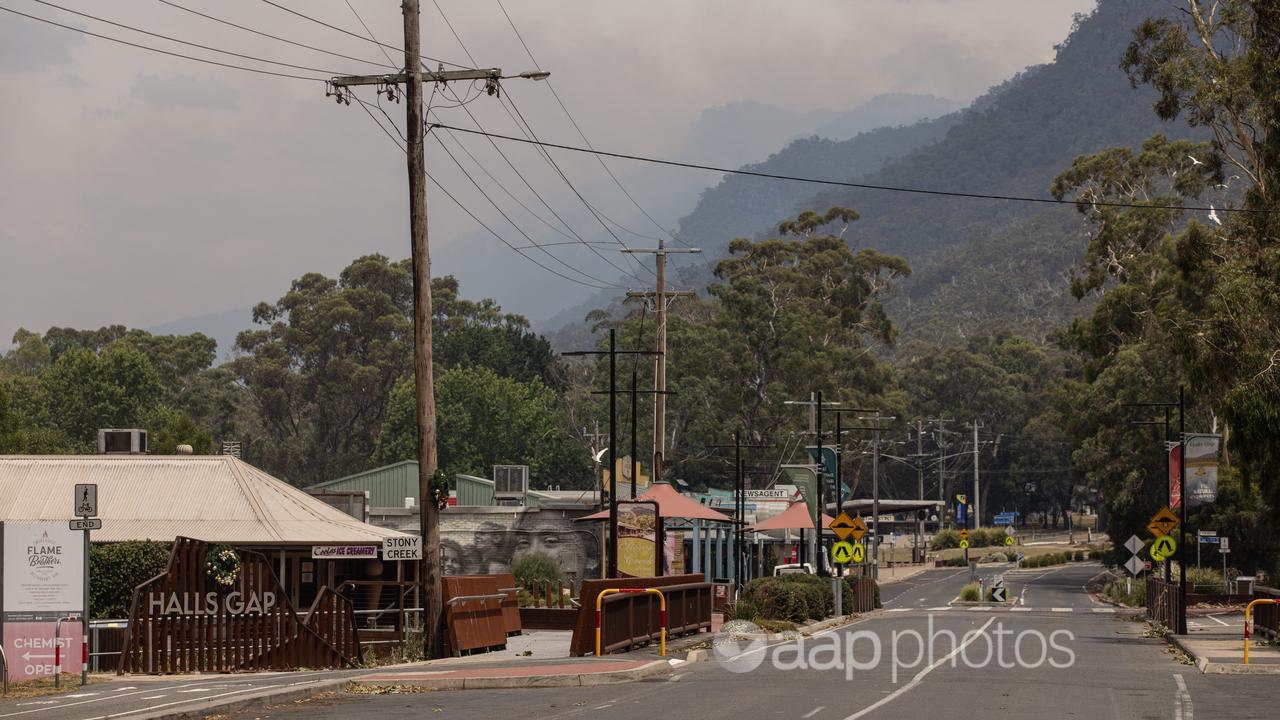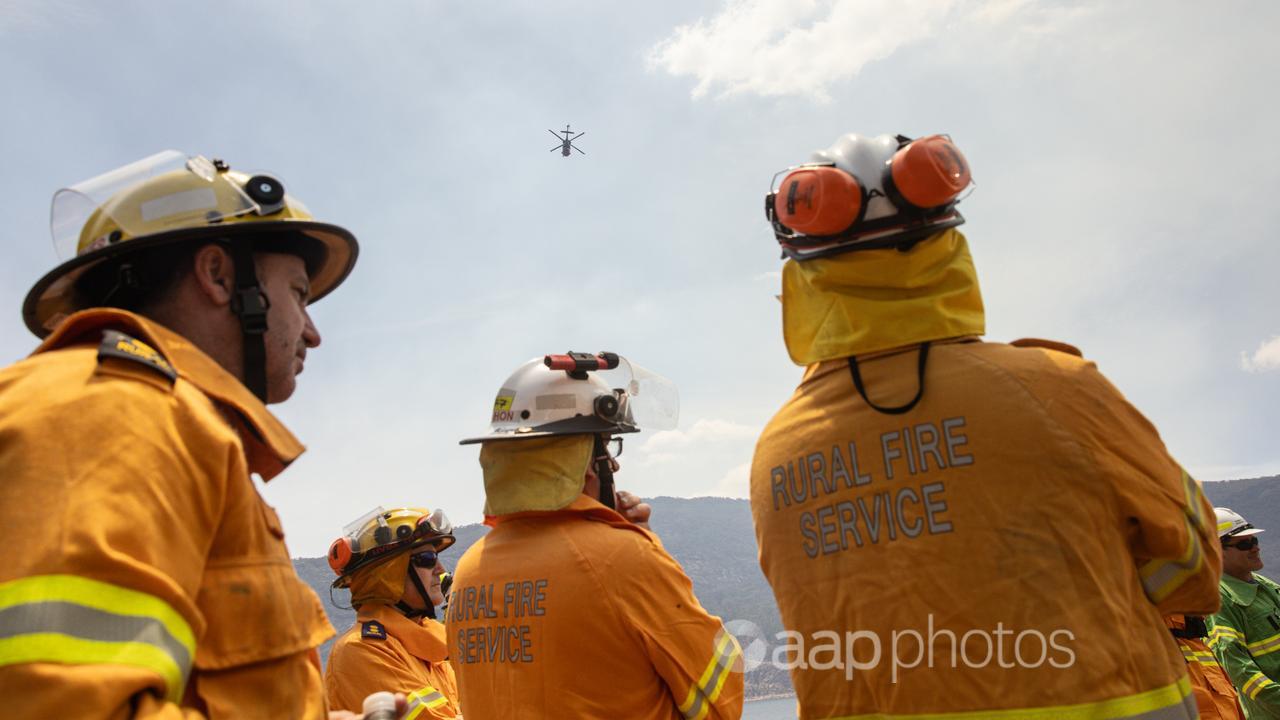At least three homes and nearly a dozen outbuildings have been destroyed by bushfire as as firefighters take advantage of more settled conditions to try to contain the blaze.
Huge bushfires continue to burn out of control in Victoria though cooler, settled conditions in the Grampians have allowed emergency crews to start initial impact assessments.
The blaze has a perimeter of more than 380km and has scorched more than 75,000 hectares, and it’s expected to burn into the new year due to dry conditions and difficult, mountainous terrain.
Emergency Management Commissioner Rick Nugent the week ahead would bring more favourable conditions for fire crews.
“Weather over the next week looks relatively stable,” he said in a statement late on Saturday afternoon.
“This will allow us time to stabilise the fires and continue backburning operations, and look to support the community further.”
Three homes have been so far been confirmed lost in Moyston, a rural farming community on the edge of the Grampians National Park.
Another 11 outbuildings have also been destroyed by the fire across Moyston and Pomonal, which was devastated by fire earlier in 2024.
State Control Centre spokesman Luke Hegarty said there was still a lot of work to be done to confirm the fire’s damage.
“These numbers will continue to evolve over the next couple of days,” Mr Hegarty said.
There have been significant livestock losses, particularly sheep.
Three watch and act alerts are in place in and around western Victoria’s Grampians National Park, and the area from Long Gully Road to College Road remains unsafe.

Residents from Halls Gap can return home but they will have to show proof of address and have been urged to watch conditions closely.
“Look out for changes in conditions such as increased winds, change in wind direction, or increased smoke in the area. They should be triggers for you to consider enacting your fire plan,” Mr Hegarty said.
Conditions in western Victoria are expected to remain settled and mild until Sunday, before westerly winds give way to warmer northerlies on Monday.
Hardship payments have become available for people with homes in evacuation areas or who have suffered property damage, via the state and federal-funded Disaster Recovery Funding Arrangements.

Federal Emergency Management Minister Jenny McAllister said the assistance included a one-off payment of $680 per adult and $340 per child up to a maximum of $2380 per eligible family to help cover essentials such as food, clothing, medication and accommodation.
“We will continue to work closely with the Victorian government as recovery needs become clear,” Senator McAllister said.
Victorian Emergency Services Minister Jaclyn Symes said emergency relief funding would help families take care of basic necessities so they could focus on recovery.
As fire crews in Victoria enjoy the cool change, a total fire ban has been issued for NSW’s northern slopes region, as dry conditions, gusty winds and temperatures into the high 30s descend on Tamworth, Inverell and the Liverpool Plains.
“We do have heatwave conditions continuing, and warnings current for northeastern parts of New South Wales and much of Queensland,” weather bureau meteorologist Sarah Scully said.
A number of fires are burning or have recently been contained in NSW, but only one blaze, a grassfire near Tamworth, has progressed beyond the advice warning level.
Showers and storms developing during the afternoon and evening might be severe, Ms Scully said.



















